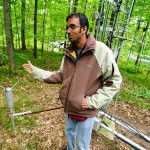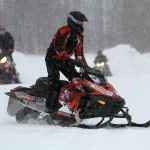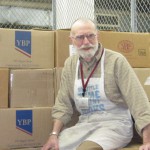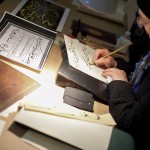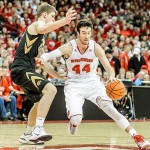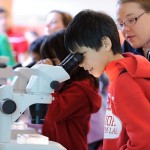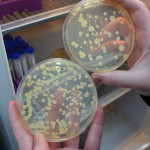Campus news Latest News
Discovery could yield more efficient portable electronics, solar cells
By figuring out how to precisely order the molecules that make up what scientists call organic glass — the materials at the heart of some electronic displays, light-emitting diodes and solar cells — a team of chemists from the University of Wisconsin–Madison has set the stage for more efficient and sturdier portable electronic devices and possibly a new generation of solar cells based on organic materials.
No increase for parking rates, bus passes for 2015-16
All parking rates will remain unchanged for the 2015-16 permit year, effective Sept. 1, 2015, through Aug. 31, 2016.
New University Staff grievances policy takes effect July 1
On July 1, 2015, UW–Madison’s Classified Staff employee designation will change to University Staff. Chapter 230 of the Wisconsin Statutes, which applies to state employee relations and personnel, will no longer govern these areas; they will be handled exclusively by UW–Madison.
UW-Madison engineering students win clean snowmobile challenge
With a highly efficient, powerful, clean-running sled, a group of University of Wisconsin–Madison engineering students took first place in the highly competitive internal combustion division of the 2015 SAE International Clean Snowmobile Challenge.
Amazing plans for ‘Amazing Race’ winner
You may know Maya Warren for her $1 million victory, shared with fellow food science grad student Amy DeJong, in the latest edition of the CBS reality show “The Amazing Race.” You likely do not know that, after she receives her Ph.D. from the University of Wisconsin–Madison in August, she intends to homogenize her TV experience with her knowledge of ice cream, outgoing nature, and self-confidence to develop a show showcasing frozen desserts around the world.
Three in running to head veterinary lab
Three finalists have been selected in the search for a new director of the Wisconsin Veterinary Diagnostic Lab.
Chi Phi fraternity chapter terminated as student organization
The Chi Phi fraternity chapter at UW–Madison has been terminated as a student organization for violations of Student Organization Conduct policies.
UW-Madison honored for support of employees in the military
When Division of Information Technology (DoIT) Mobile Strategy Manager Dave Schroeder was asked whether the University of Wisconsin–Madison supports the military, he had a lot to say.
Rotary honors longtime UW Libraries employee, volunteer, book lover
James Dast is being honored with the Senior Service Award given by the Rotary Club of Madison, the University of Wisconsin–Madison Libraries announced today. Dast, who retired as the Libraries' conservator in 1996, has spent the past 30 years volunteering with the Friends of the Library. He will be honored at a Rotary luncheon today.
Hurricane expert Kerry Emanuel to speak at UW–Madison
Kerry Emanuel, a leading authority on hurricanes and climate, will deliver the 6th Len Robock Annual Lecture March 24 at the University of Wisconsin–Madison.
Webinar today: Emergency savings vital to U.S. families’ financial health
A large number of American families would have trouble coming up with $400 to cope with a sudden emergency - a fact that highlights a major gap in policies intended to promote financial well-being.
Calligraphy tour-de-force celebrates traditions, methods and materials of sacred texts
Scribes representing each of the Abrahamic religions shared their skills and sacred-text traditions with the community Thursday as part of the Chazen Museum of Art’s programming for “Illuminating the Word: The Saint John’s Bible,” which closed Sunday.
Bracketology 101: What McLay reads in the seeds
Will a No. 5 seed lose to a No. 12? Will No. 1 seed Wisconsin make it all the way to the Final Four for the second year in a row? One could guess the answers to these key questions before March Madness begins in earnest, but there are much better ways to fill out NCAA brackets, according to UW–Madison’s resident bracketologist, Laura McLay, an associate professor of industrial and systems engineering.
Classified Staff Congress approves resolution opposing budget cuts
The Classified Staff Congress Monday quickly approved a resolution in opposition to Gov. Scott Walker’s proposed budget and in support of shared governance.
Recent sightings: Campus warm-up
Photo: Bryce Richter A still-frozen Lake Mendota and the lack of chairs at the Memorial Union Terrace weren’t enough to deter…
UW mascot Bucky Badger is namesake for newly discovered yeast
When you discover a new organism, you get to name it - but not for yourself. There are rules to the naming business in biology. You can, however, name it for the sponsor of your research. When Chris Hittinger and his group of yeast researchers at the University of Wisconsin–Madison found a rather aggressive yeast, it was natural to name it for the fierce carnivore that is the mascot of his home institution: Bucky Badger.




